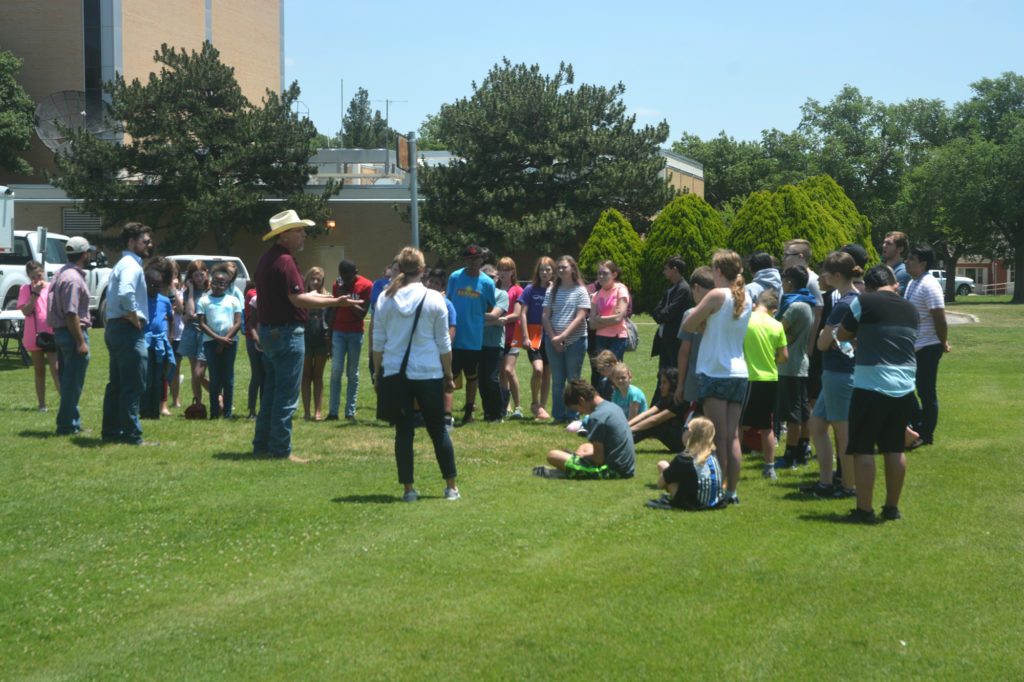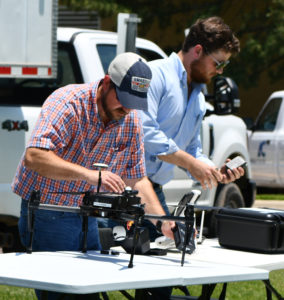AgriLife Research engineer uses drones to introduce youth to agriculture, technology careers
Writer: Kay Ledbetter, 806-677-5608, [email protected]
Contact: Dr. Brent Auvermann, 806-677-5600, [email protected]

AMARILLO – In an effort to excite youth about agricultural research, Dr. Brent Auvermann and his team recently took their unmanned aerial vehicles, UAVs, to Drone Camp at Amarillo College.
Auvermann, director for the Texas A&M AgriLife Research and Extension Center at Amarillo, has been using drones and advanced technology in his Texas A&M AgriLife Research air quality program and other research endeavors.
“We love to participate in anything that gets kids fired up about science, technology, engineering and mathematics,” Auvermann said.
He, along with his AgriLife Research team, drone pilots Jack Bush, a senior research associate, and Clayton Goodwin, a research technician, brought quadcopters and other instruments to the program to show nearly 60 youth who attended the camp.

“How many of you like to figure things out when you are at home?” Auvermann asked those attending. “Did you know you can make a living figuring things out?”
He talked about the various sciences – geology, biology, astronomy and more.
“Nobody can know it all,” Auvermann told them. “But you can make a good living being one of the people who tries to figure out how the world works. These are called researchers. That’s what I am, a researcher. I spend my entire life trying to answer questions. Then I hand the answers off to somebody else and go find another question to answer.”
Auvermann said even though drone-based research makes up only about 5% of the Amarillo center’s research portfolio, drones make it easy to connect to youth because they’re fun to fly, and the drones help scientists get research-grade information.
Auvermann’s team demonstrated the drones flying and the sensors on them, including letting the youth watch what the drone sees in regular color and thermal infrared view.
“Hopefully we can get some of these kids excited about a career in some kind of scientific or engineering research, learning more about the world around them,” he said. “And if they can find a career in that, every day will be a brand-new day.”


